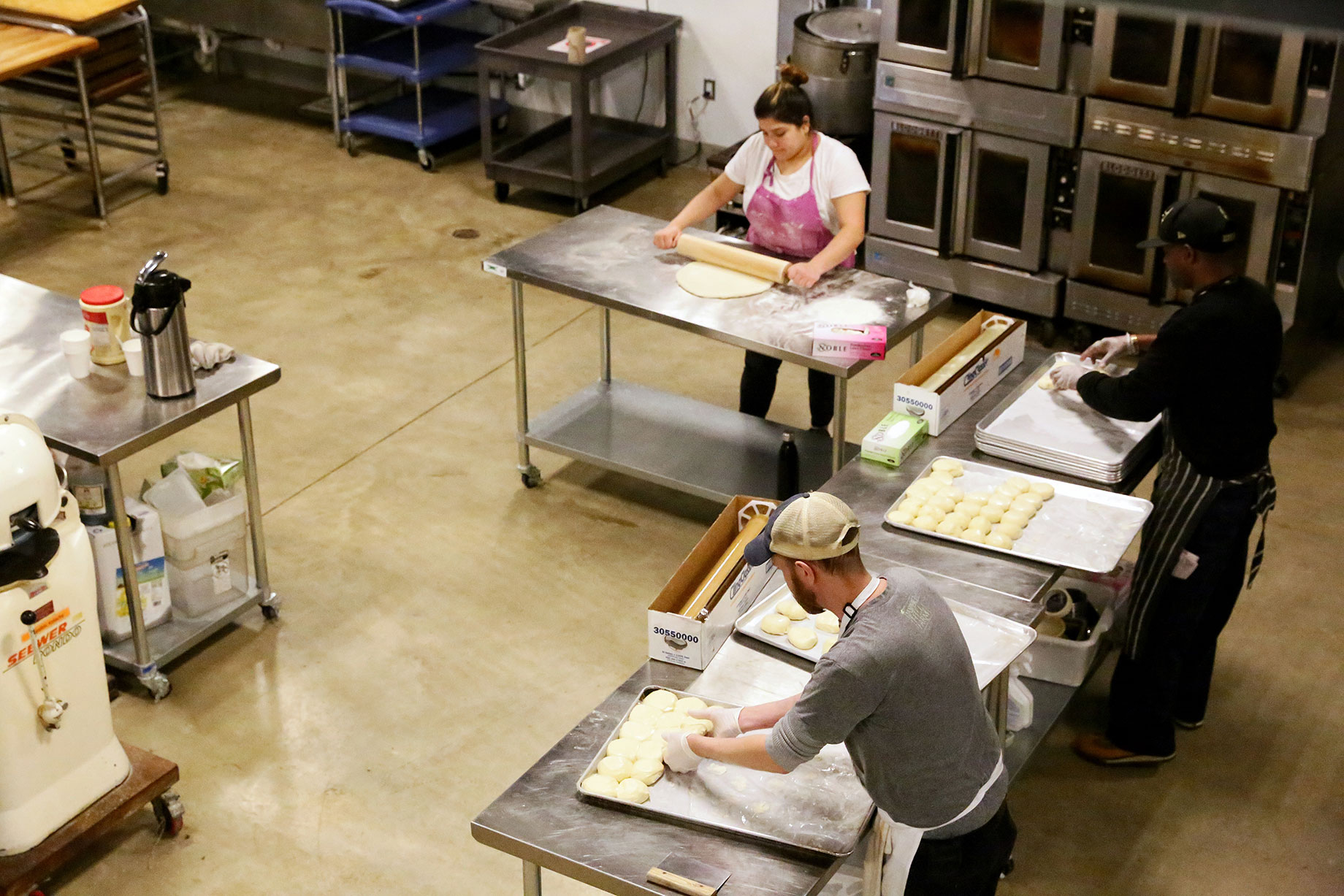Food halls have gained popularity in recent years, a trend that is likely to continue. In just the first three quarters of 2016, the number of U.S. food halls grew by about 100 projects, up by 37 percent over 2015, according to a Cushman & Wakefield report. The firm is also projecting nearly double that number by next year. Diners certainly appreciate the array of options and the typically affordable prices food halls offer, but some real estate developers are finding food halls an attractive option for anchoring their buildings. Among the newest food halls to open is Tastemakers, in the vibrant and diverse Brookland neighborhood of Washington, D.C.
About two years ago, Tastemakers founders Kirk and Juliann Francis — the married couple behind Captain Cookie & the Milkman food trucks (and shop) — saw that they were outgrowing their shared kitchen and that they were not finding alternatives in the local market. They decided that what they needed was a fully licensed, well-managed facility in a safe neighborhood convenient to the District of Columbia and which would provide room to grow, parking on site and easy access to a Metro station.
“That’s a nearly impossible combination in D.C.’s exploding real estate market,” Kirk said. “While we were checking out other kitchens in D.C. and beyond, we realized that a lot of our fellow food truckers, caterers and food startups were in the same situation: wanting to move out of less-desirable economy kitchens but unable to afford the rates of top-tier kitchens. We wanted to help ourselves and help our fellow entrepreneurs with a top-tier, well-managed and affordable kitchen.” The couple came up with a cooperative vision.
Enter Bethany Kazaba, CEO and managing principal of local leasing and brokerage firm Neighborhood Retail Group. “She somehow managed to find the perfect location with the right rent [and] good bones to build out our kitchen, plus metro access and big enough utility service for a large kitchen,” Kirk said. “With a little creativity and by demolishing an old walkway, we were able to turn five parking spaces into 12.”

Cooking with fire Tastemakers allows businesses to prepare food in the communal kitchen to be served from kiosks in the communal dining hall.
Tastemakers measures some 7,300 square feet on the main floor, with an additional 1,400 square feet of storage and office space in the mezzanine. The kitchen occupies nearly 5,000 square feet, with the remaining 2,300 square feet comprising the food hall, café-style seating, a full bar and a grab-and-go section. There will soon be outdoor seating as well.
“Rather than partition the space into individual kitchenettes for each food startup, we pursued the gym model of providing extra capacity in the equipment most likely to be used and keeping personal space restricted to storage racks or specialty equipment,” Kirk said. “Most of the kitchen members don’t have space in the food hall. So each food hall kiosk may or may not have a membership in our kitchen — most of our kitchen members have their own retail outlets, whether that be farmer’s markets, food trucks or online/wholesale distribution. We’ve put large glass doors on two sides of the show kitchen [a self-contained kitchen where cooking classes, tastings and demonstrations are held], so that guests can see the cooking in that area.”
“Community kitchens like Tastemakers are a great way for entrepreneurs and startup business owners to test their recipes and business model prior to committing to a long-term brick-and-mortar retail lease.”
Currently, Tastemakers has 15 food businesses working out of the kitchen space (putting the kitchen at 65 percent capacity). All eight kiosks in the food hall are leased. When it came to choosing the vendors to feature in the space, Kirk says he and Juliann wanted to strike a balance: a coffee kiosk, a sweets-and-frozen-treats vendor, a bar and five savory vendors, with at least one breakfast provider and at least one being a late-night vendor. “To some extent, the kitchen and food hall will always be in flux as we test to make sure we have the right balance of kitchen equipment, storage space and variety of offerings,” he said.
Tastemakers is a green facility, with rigorous food-waste donation, recycling and composting programs. Solar panels cover about 60 percent of the roof, and 30 to 50 percent of the power is generated on site. During construction the couple made sure to install energy-efficient LED lighting, efficient water and heating systems and three-phase electrical service to the larger appliances.
“Community kitchens like Tastemakers are a great way for entrepreneurs and startup business owners to test their recipes and business model prior to committing to a long-term brick-and-mortar retail lease,” Kazaba said. “It is our hope that we can assist the members of Tastemakers as they grow out of Tastemakers to find a home of their own. Additionally, we hope to help Kirk and Juliann replicate the Tastemakers concept in other neighborhoods.”
General leasing inquiries may be directed to Kirk Francis, CEO, at (202) 556-3396 or kirk@tastemakersdc.com. For leasing information in the area, the contact is Bethany Kazaba, CEO and managing principal of Neighborhood Retail Group, at (202) 617-3113 or bethany@neighborhoodretail.com.
By Misty Milioto
Contributor, Shopping Centers Today


